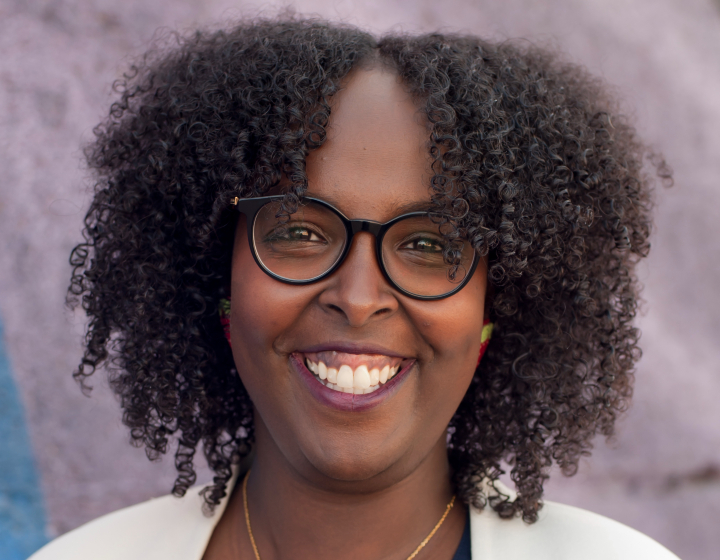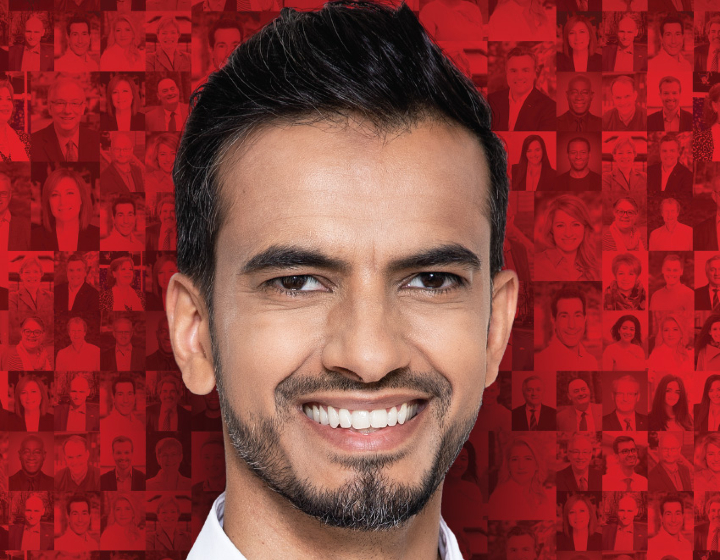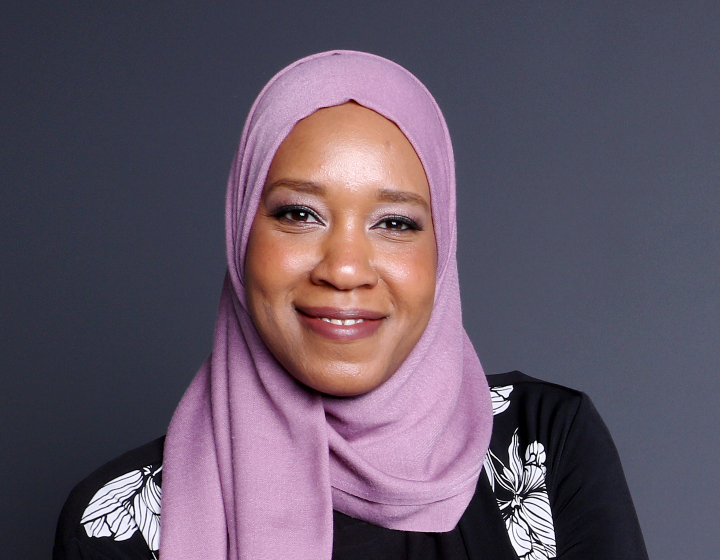A record number of Muslims won seats in the Canadian Parliament in the 2019 federal elections.

As Canadians head to the polls on Sept. 20, dozens of Muslims across different parties are once again running for office this year.
The exact number is difficult to establish because Elections Canada and the Library of Parliament do not collect information about candidates’ religious affiliations.
Muslims make up only three per cent of the Canadian population, but candidates feel a greater representation in the government is needed amid a rise in Islamophobia in the country.
Global News spoke to six Muslim candidates from the Liberal Party of Canada and the New Democratic Party about challenges on the campaign trail, key voter issues and what they planned to do if elected.
For this story, Global News also contacted Muslim candidates of the Conservative Party but the request was either declined or there was no response by the time of publication.
Mohamed Hammoud
For the second time, Liberal candidate Mohamed Hammoud is running in the Ontario riding London-Fanshawe. The 53-year-old was unsuccessful in his first outing, finishing second behind New Democrat Lindsay Mathyssen, who was elected in the southwest Ontario riding.
Originally from southern Lebanon, Hammoud immigrated at the age of eight to Canada with his family back in 1976. As a Muslim growing up in St. Thomas, Ont., he says he faced a lot of racism and bullying as a child, and it only got worse as he got older, Hammoud told Global News.
While his personal challenges inspired Hammoud to want to make his voice heard, he admits that he also feels depleted and distressed by the hate that has also made its way onto the campaign trail.
“Most recently in this campaign, people have been sending me private messages like ‘I would never vote for one of you. There’s already one F-ing Mohamed at City Hall, we don’t need another one,’” he said, in reference to London Councilor Mohamed Salih.
In 2019, his car was keyed outside of the campaign office and on another occasion, he found a letter on his car that read: “Get the F out of our country and go back to Saudi Arabia because you blew up the Twin Towers.”
- Khamenei’s death met with ‘jubilation’ among Iranian-Canadians: Liberal MP
- ‘At first I cried’: How Iranian Canadians are reacting to the U.S. strikes in Iran
- Iran begins search for new leader; U.S. military says 3 service members killed
- Queen’s University students stranded in Doha after Iran attack shuts down airspace
“As a Muslim, I want to make sure that some of the concerns that my community has that maybe aren’t discussions that are being had in Parliament right now, I want to make sure that they’re being had,” the Liberal candidate said.
To address the issue of Islamophobia and other concerns, Hammoud encouraged the Muslim community to become more active and engage with the government and other stakeholders.
“We can’t just look to the government to make things right,” he said.
“It really has to be to us to be part of that conversation and to make sure that we feel empowered and hold the government and our elected officials accountable to make sure that they’re translating words into action.”
Salma Zahid
After twice holding office, Liberal MP Salma Zahid is running for re-election in Scarborough Centre.
Over the past year and a half, Zahid, 51, has served as the chair of the Standing Committee on Citizenship and Immigration.
As an immigrant of Pakistani origin herself, Zahid said she is well aware of the struggles and sacrifices people have to face when they move to a new country, which is why she wanted to bring those issues to light in the political sphere.
In an effort to unite the local community, Zahid created the Scarborough Centre Multifaith Council, bringing people from different religious organizations under one umbrella.
As a woman of colour and a Muslim, she said she has faced challenges trying to win voters.
“As I’m canvassing every day, a few times people have passed racist remarks that, ‘I will never vote for a Muslim.’”

In her previous campaigns, she was also told to go back to where she belongs, Zahid recalled.

Get breaking National news
The deadly attack on the Canadian-Pakistani Afzaal family in London, Ont., in June 2021 particularly resonated with Zahid, as she herself often walks in her neighbourhood wearing a hijab and a traditional shalwar kameez.
“When I heard about this news about the London incident, it hit really, really close to my heart, and I said to myself that it could have been … us.”
She said many young girls in her riding have told her that they’re scared to even wear a hijab in public.
“We have done a lot of work in the last six years to make sure that we fight all forms of racism, but I think there is a lot more work to be done.”
Going forward, Zahid says it will be important to tackle online hate and create awareness and education around it.
If re-elected, she also aims to push for appropriate funding for the Anti-Racism Secretariat that was launched two years ago as part of Canada’s Anti-Racism Strategy 2019–2022.
Arif Virani
First elected in 2015, Liberal MP Arif Virani has already served two terms in the Parliament for the Parkdale–High Park riding in Toronto.
He came to Canada in 1972 as a refugee from Uganda when Ugandan dictator Idi Amin exiled 7,000 Asians from the African nation.
Prior to entering politics, Virani worked as a human rights and constitutional lawyer for 15 years.
As an MP, he served as the parliamentary secretary to the Minister of Justice and Attorney General David Lametti between December 2019 and August 2021.
In that role, he said he did consultations with Muslim groups about how to address online hate before the Liberals tabled Bill C-36 in the House of Commons in June 2021.

Virani was also involved in a study on M-103, a non-binding motion in the 42nd Canadian Parliament, which called on the government to condemn Islamophobia and all forms of systemic racism and religious discrimination.
“I’m extremely concerned about Islamophobia and have been vocal about it ever since I was first elected,” Virani said.
“People are getting radicalized online … and we need to curb that. And dealing with online hate is one of the primary ways in which we can.”
Following the success of Muslim Liberal candidates in the 2019 election, Virani said raising the number of Muslim voices in the House of Commons can help amplify the widespread issues concerning Muslims both at home and abroad.
“If you have more Muslims in Parliament, there’s more attention paid to Muslim causes.”
Hawa Mire
Hawa Mire is making her federal election debut as a candidate for the National Democratic Party in the Ontario riding of York South-Weston.
Born in central Somalia, Mire came to Canada in the late 1980s during the African nation’s civil war.
Mire is a small business owner and a community organizer with two decades of experience in the non-profit and charitable sector.
She said one of the reasons she decided to run in this year’s election was the lack of attention or care given to issues involving seniors, the Black community as well as the low income and working class people in her riding during the COVID-19 pandemic when it came to testing and vaccinations.
“I jumped into politics because I felt as if our federal representative just wasn’t present.”
“The communities that I saw really struggling during the pandemic … weren’t really supported.”

Mire said she was also very concerned about the rise in hate crime across the country, particularly against Black women who were visibly Muslim or were wearing a hijab.
To address the problem, she said stronger legislation around anti-hate groups as well as diversity in the government was needed.
”I think if we see an increase in the level of diversity of folks who are elected into office at both the federal and the provincial level and the municipal level, I think we’ll see much stronger legislation come through.”
If elected, she said would continue to fight for the issues that impact women, racialized women, Muslim women, but also the Somali communities across this country.
Sameer Zuberi
MP Sameer Zuberi is a Liberal candidate for the Pierrefonds-Dollard riding in Quebec. He entered the Parliament for the first time in 2019 and is now seeking re-election.
The 42-year-old comes from a mixed background, with his mother of Scottish-Italian descent and his father an immigrant from Pakistan.
He served in the Canadian Armed Forces for five years as a reservist and worked at McGill University’s faculty of medicine, before kick-starting his political career.
Despite being born and raised in Canada, as a person of colour, Zuberi says throughout his life he has had to explain his background.
“When I share that I have served in the army, they say which army? Even if I say the Canadian army it doesn’t register fully for everyone.
“So I have all my life done a lot of diplomatic relations in terms of explaining who I am, my background and what I stand for.”
Among the election issues he sees as key, Zuberi says he feels strongly about discrimination, particularly when it comes to the Muslim community, stressing that “there is a lot of work to do” to address it.
“I’ve been concerned around discrimination towards Muslims and Islamophobia for a while. This is not new.”
But he remains hopeful that this can be tackled through better education and demystifying.
“That is something that we all must be part of, those who are Muslim and all of society working together, to have accurate narratives on who Muslims are,” he said.
Huda Mukbil
The NDP’s Huda Mukbil is a first-time candidate contesting in Ottawa South.
Born in Ethiopia, Mukbil fled the civil war with her family and moved to Egypt in the 1970s, before immigrating to Canada.
The 44-year-old has over 18 years of experience working as a national security expert for the federal government. Now, she says she has her eyes set on serving her community.
As a Black Muslim woman wearing a hijab, Mukbil says she has faced everyday challenges in the workplace and noticed that there was a lack of diversity in her profession, which pushed her to run for office.
“I had my own experiences with systemic and structural racism … in my career in national security,” she said.
“In my organization (Canadian Security Intelligence Service), I was the only one that was wearing a hijab for many, many years, and the first and there was so many barriers,” she added.

The Ottawa South riding has an over 10 per cent Muslim population, but Mukbil criticized the fact that no mosques were being used as polling stations, while 10 different churches were designated. She said she raised the issue with Elections Canada, and had not heard back yet.
Mukbil believes greater Muslim representation in Ottawa is needed going forward to address the community’s concerns.
“We’re in 2021 and I feel disheartened that I have to raise the issue and now,” she said.
On the rise of Islamophobia, Mukbil said hosting a National Summit on Islamophobia this year and listing of terrorist groups were both positive developments, but added that legislative changes were needed.
“We’ve had a lot of promises,” she said. “I want to see some action.”














Comments
Want to discuss? Please read our Commenting Policy first.